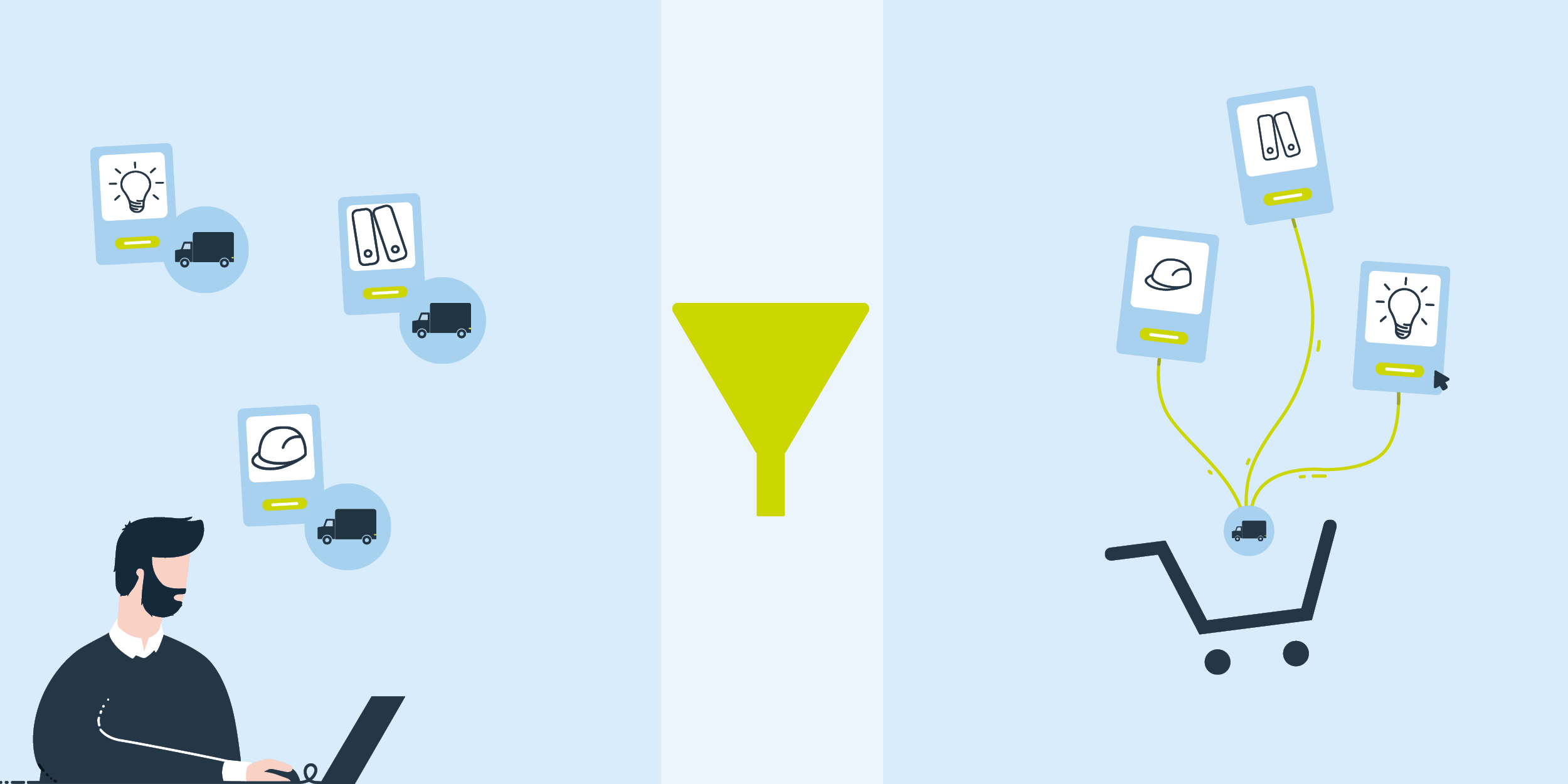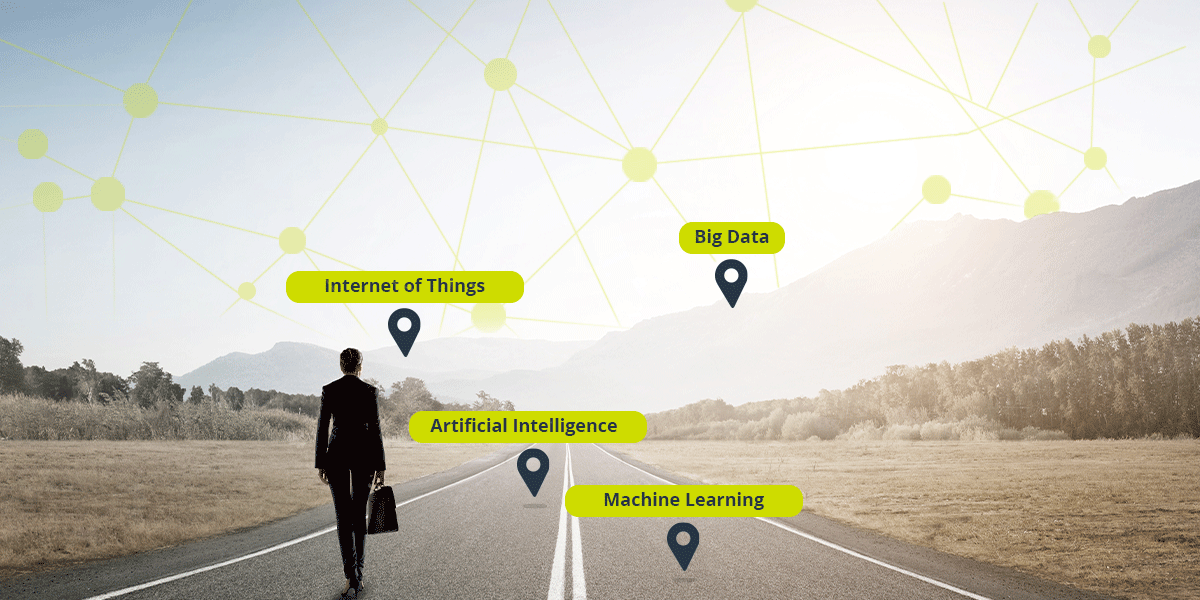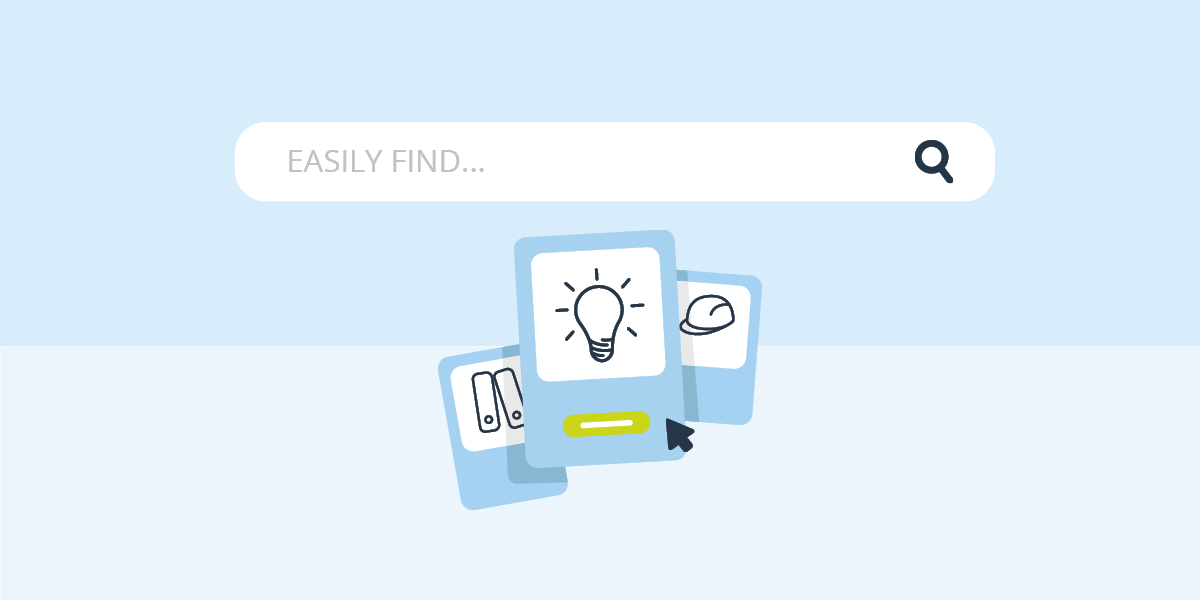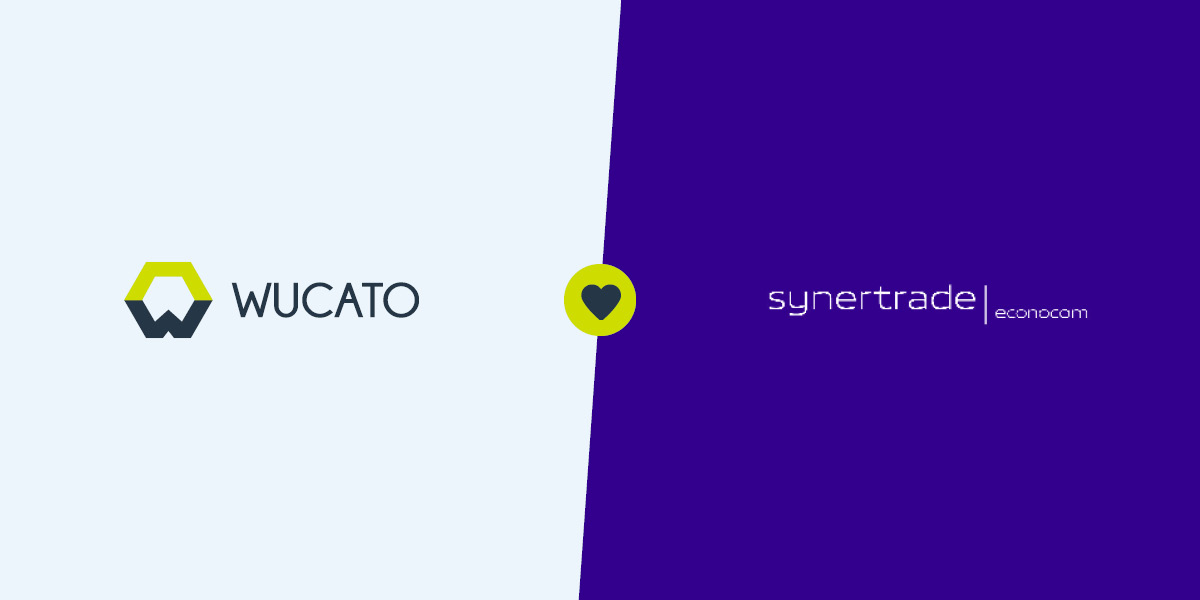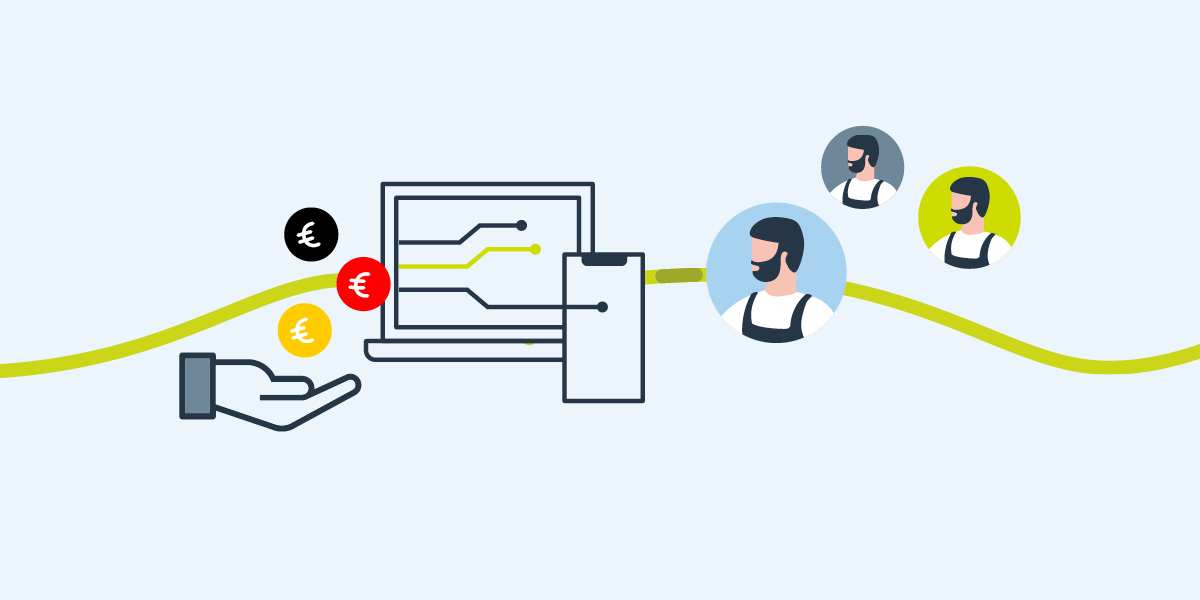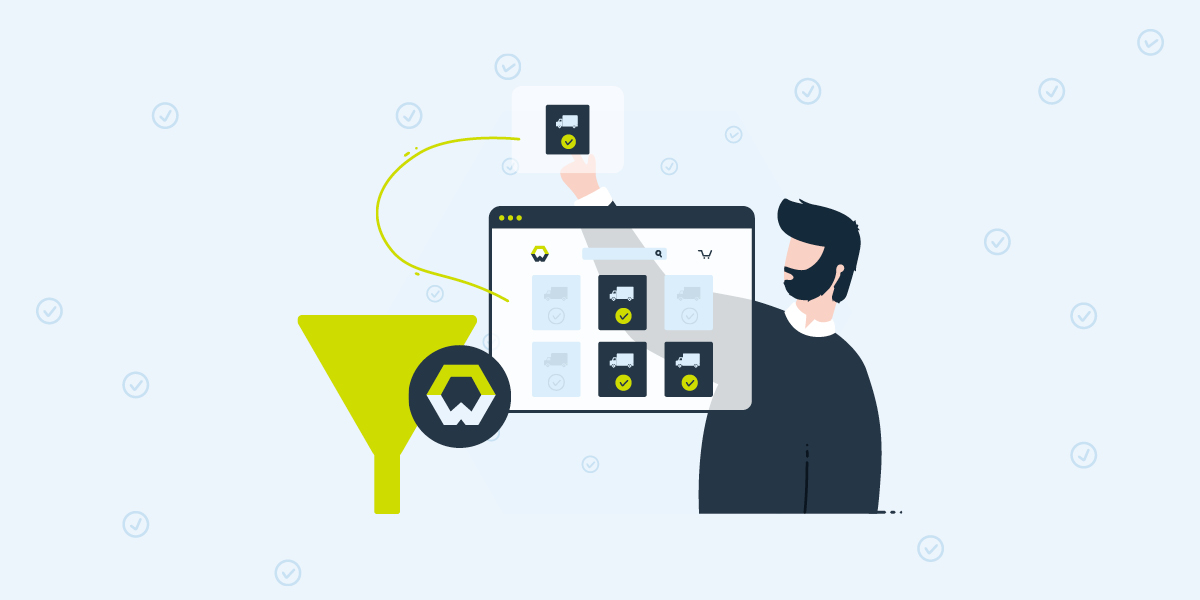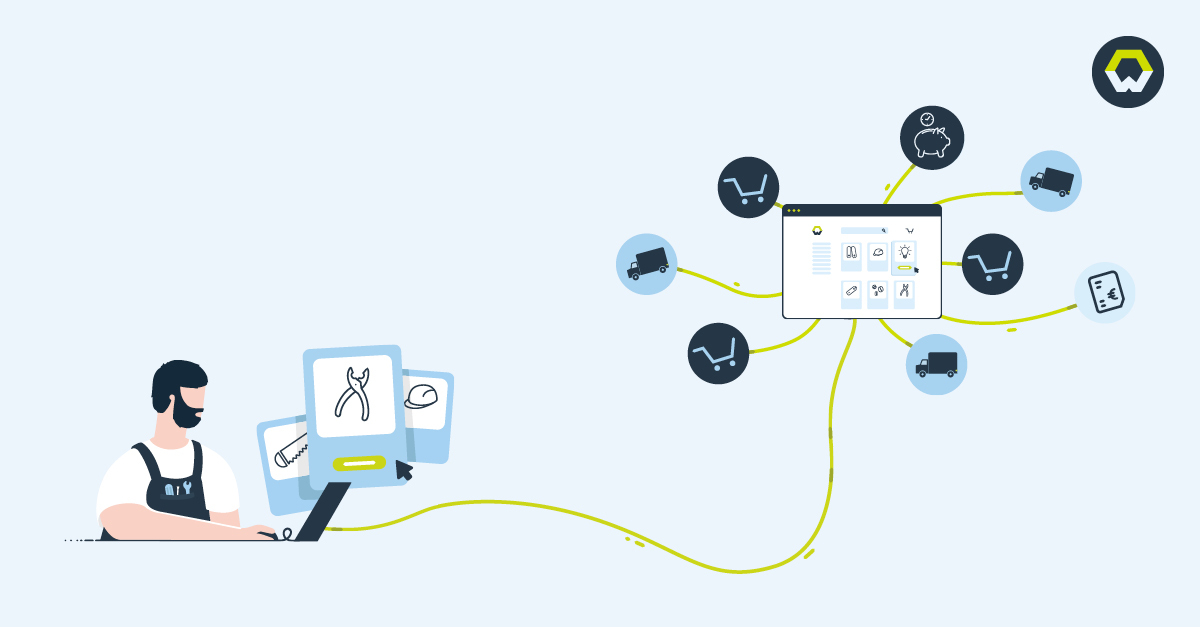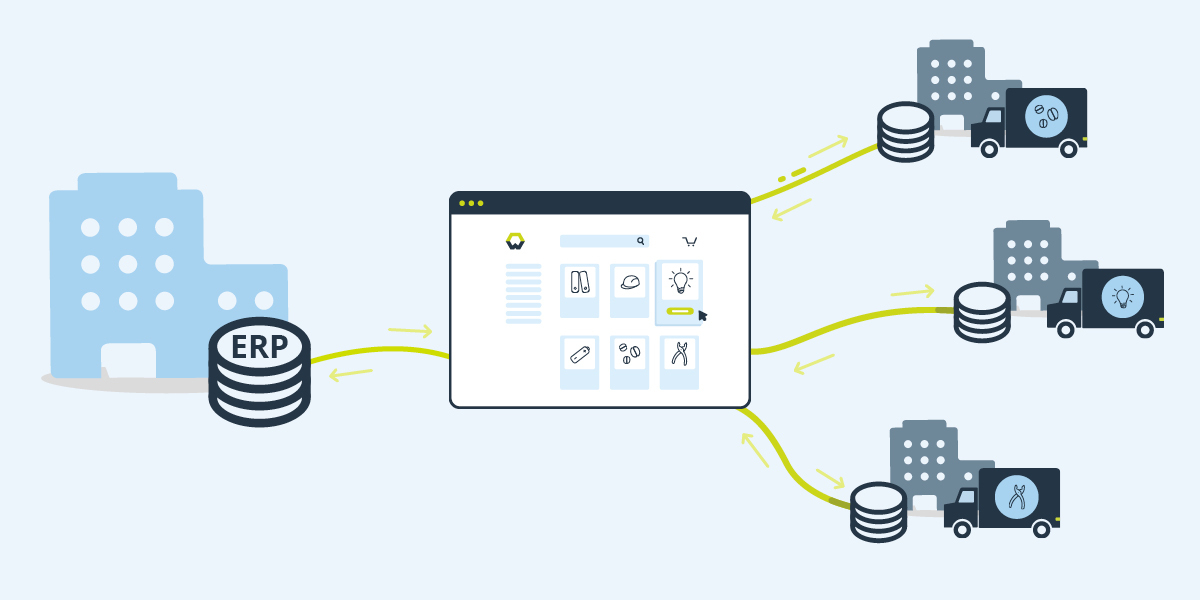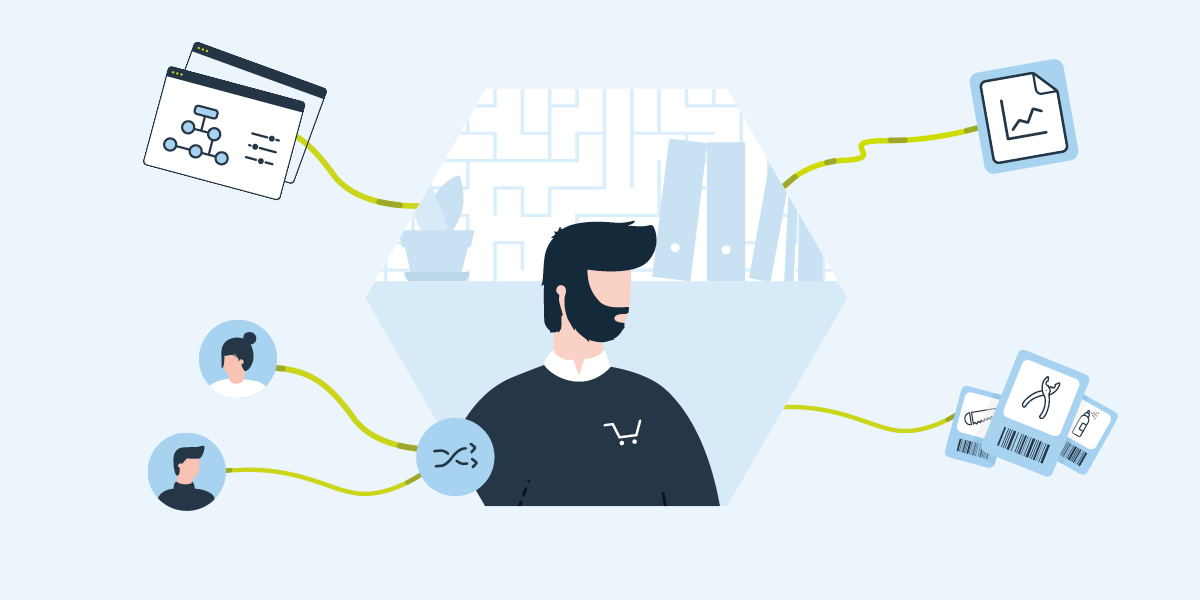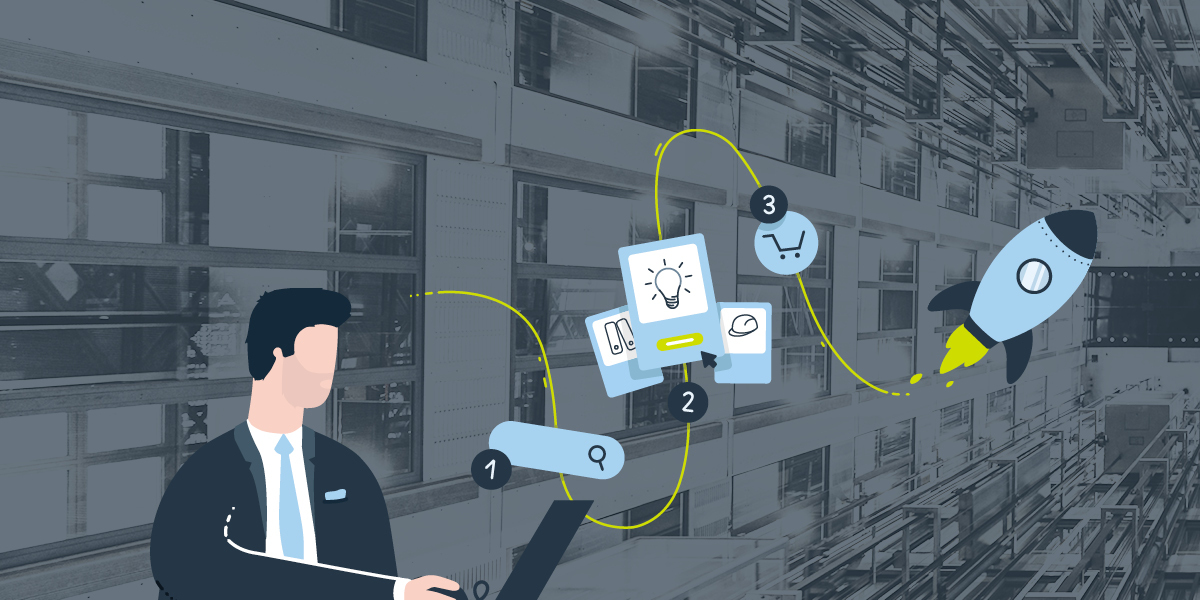Digitalization in sales

The pressure to digitalize is also mounting in B2B sales. Companies that fail to switch to digital processes on time risk falling behind more digitally savvy competitors. When it comes to digitalization in sales, it is crucial to rely on a well thought-out concept and competent partners.
So what do the B2B sales of the future look like? Experts agree: first and foremost, the process will be a digital one. In as early as 2015, the management consultancy firm Roland Berger concluded in a study that digitalization was rapidly changing the face of B2B sales – like numerous other industries. But conventional sales structures, which are strongly geared toward direct customer contact, can stand in the way of this development – and companies may be wasting potential as a result. This is because, according to Roland Berger, 57% of the procurement process in B2B business was already done and dusted six years ago when decision-makers first contacted a sales rep. So it is important to attract customers' attention long before the first direct contact.
Last year, the COVID-19 pandemic proved ruthless in exposing digitalization gaps, and also demonstrated the need for digital structures and processes. The realization among many in the industry is that digital processes have actually become an indispensable part of everyday business in B2B sales. This is also confirmed by the current study on the topic of commercial excellence "What makes sales and marketing successful" by Ernst & Young. The consultancy firm concludes that, although successful companies have a higher level of digital maturity, the topic of digital strategy is often not yet a top priority and many companies lack holistic approaches.
Digital sales: a definition
What does the term “digital sales” mean anyway? Also referred to as B2B e-commerce, this sort of approach involves digital channels and sales tools to sell one's own products. These include, for example, online shops and digital trading platforms, but also the internal use of a CRM system. By contrast, conventional sales approaches still rely heavily on direct customer contact and personal sales consultations. The shift towards digital processes offers a lot of potential for companies: they can be used to optimize or even automate time-consuming manual processes and a complex sales structure. This in turn gives sales staff more time to focus on what's important: their customers.
Digitalizing sales: what should companies bear in mind?
B2B customers are increasingly using digital channels to obtain information and buy products or services. And anyone who places orders from large online stores in their free time expects, at least subconsciously, similar processes to apply in the professional sector as well. This includes the option of buying products online in the first place, being able to make an informed purchase decision based on comprehensive product information, and transparent pricing information. Companies should keep these expectations regarding customer experience (CX) in mind when digitalizing their B2B sales.
Digital sales: the future for B2B?
The trend toward digital sales channels and processes is unstoppable in the long term, that much is certain. Companies that fail to put the necessary structures in place and continue to rely exclusively on conventional sales tools risk falling behind more digitally savvy companies. It is not, however, necessarily important to throw all analog processes and conventional sales tools overboard, as a recent survey by the Laboratory for the Digitalization of Technical Sales at Aschaffenburg University of Applied Sciences also shows: all survey participants felt that the sales force was not something that could be replaced, and 62% saw digital sales tools as a way to support the sales team. EY reaches the same conclusion in its study: "Excellent sales organizations establish an environment in which online and offline sales channels coexist efficiently."
Partner for digital sales
Companies are most likely to benefit from the advantages of digital sales if they rely on a holistic concept and competent partners. Wucato, for example, provides companies with a powerful and user-friendly B2B trading platform as a digital sales channel that puts them in touch with new potential customers quickly and easily and helps them retain existing customers. Companies have two options for using Wucato as a digital sales channel: they can either use Wucato as an indirect supplier, meaning that the trading platform acts as a sort of intermediary. Or they can become a direct supplier and use Wucato as a digital interface – maintaining personal contact with the customer.
More articles from the category "Supplier management"


